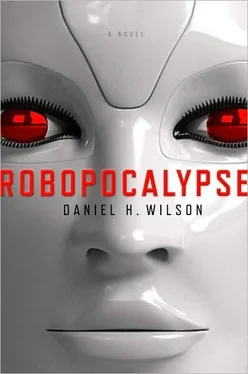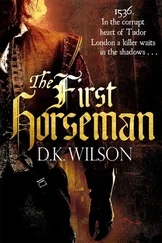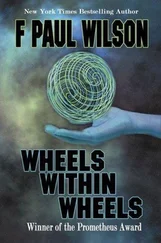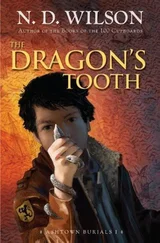Daniel Wilson - Robopocalypse
Здесь есть возможность читать онлайн «Daniel Wilson - Robopocalypse» весь текст электронной книги совершенно бесплатно (целиком полную версию без сокращений). В некоторых случаях можно слушать аудио, скачать через торрент в формате fb2 и присутствует краткое содержание. Город: New York, Год выпуска: 2011, ISBN: 2011, Издательство: Knopf Doubleday Publishing Group, Жанр: Ужасы и Мистика, на английском языке. Описание произведения, (предисловие) а так же отзывы посетителей доступны на портале библиотеки ЛибКат.
- Название:Robopocalypse
- Автор:
- Издательство:Knopf Doubleday Publishing Group
- Жанр:
- Год:2011
- Город:New York
- ISBN:978-0-385-53386-7
- Рейтинг книги:5 / 5. Голосов: 1
-
Избранное:Добавить в избранное
- Отзывы:
-
Ваша оценка:
- 100
- 1
- 2
- 3
- 4
- 5
Robopocalypse: краткое содержание, описание и аннотация
Предлагаем к чтению аннотацию, описание, краткое содержание или предисловие (зависит от того, что написал сам автор книги «Robopocalypse»). Если вы не нашли необходимую информацию о книге — напишите в комментариях, мы постараемся отыскать её.
Archos
assumes control
most are unaware
When the Robot War ignites—at a moment known…
Robopocalypse — читать онлайн бесплатно полную книгу (весь текст) целиком
Ниже представлен текст книги, разбитый по страницам. Система сохранения места последней прочитанной страницы, позволяет с удобством читать онлайн бесплатно книгу «Robopocalypse», без необходимости каждый раз заново искать на чём Вы остановились. Поставьте закладку, и сможете в любой момент перейти на страницу, на которой закончили чтение.
Интервал:
Закладка:
I feel the cool tip of the boot nudge my forehead.
“No offense there, partner.”
The boot goes away.
“Gates are closed. Try to come in here, you’ll get a bullet sandwich from my man on the tower. Ain’t that right, Carl?”
“That’s affirmative,” replies Carl, from somewhere behind the spotlight.
“Now,” says the soldier, stepping back toward the gate. “Get the fuck out of here. Both of you.”
The soldier steps behind the light, and I realize it’s not a pile of clothes I’ve been looking at. The outline is visible now. It’s a human body. Bodies. There are mounds of them heaped together like candy wrappers blown against the fence. Frozen by the weather in anguished contortions. The splotches on the ground in front of me—under my face— aren’t oil .
A whole lot of people died here not long ago.
“You fucking killed them?” I ask, in disbelief.
Jack groans softly to himself. The soldier does that dry chuckle again. His boots scratch pavement as he saunters over to me. “Dang, Sergeant. Your brother doesn’t know when to keep his mouth shut, does he?”
“No, he does not,” says Jack.
“Let me explain it to you, pal,” says the soldier.
Then I feel a steel-toed boot crunch into my rib cage. I’m too surprised to yell. My breath wheezes out of my lungs mechanically. I’m in the fetal position for the next two or three kicks.
“He gets it,” shouts Carl, faceless in the night. “I think he gets it, Corporal.”
I can’t help moaning—it’s the only way I can breathe.
“Just let us go,” says Jack. “We’re gone, man. We’re gone.”
The kicking stops. The soldier chuckles one more time. It’s like a nervous tic. I hear the metallic chink of his rifle being cocked.
Carl speaks up, from the invisible tower. “Sir? There’s been enough of that already, don’t you think? Let’s disengage.”
Nothing.
“Corporal, let’s disengage,” says Carl.
The gun doesn’t fire, but I can feel those faceless boots waiting there. Waiting for me to say something, anything. Curled up and hurting, I focus on trying to force breath in and out of my battered rib cage.
I don’t have anything left to say.
The soldier was right—we smell the refugees before we see them.
We reach the camp just after midnight. Down along the bank of the Hudson we find thousands of people milling around, camping and squatting and searching for information. The long, narrow strip of land has an old iron fence between it and the street, and the terrain is too rough for the domestic robots.
These are the people who’ve come to Fort Bandon and found no refuge. They’ve brought along their suitcases and backpacks and trash bags filled with clothes. They’ve brought their parents and wives and husbands and children. In their masses, they have built campfires from scavenged furniture and gone to the bathroom by the river and thrown their trash to the wind.
The temperature hovers just above zero. The refugees sleep, snoozing under piles of blankets, inside freshly looted tents, and on the ground. The refugees fight, scuffling with fists and knives and an occasional gunshot. The refugees are angry and scared and hungry. Some beg, camp to camp. Some steal firewood and trinkets. Some walk away into the city and don’t come back.
These people are all here to wait. For what, I have no idea. Help, I guess.
In the darkness, Jack and I meander among the campfires and clusters of refugees. I hold a handkerchief over my face to ward off the smell of too much humanity in too small of a place. I instinctively feel vulnerable around this many people.
Jack feels it, too.
He taps my shoulder and points to a small hill covered in brush. High ground. A man and a woman sit next to each other among the tufts of dead grass, a small Coleman lantern between them. We head over.
And that’s how we meet Tiberius and Cherrah.
On the hill, a huge black man wearing a Hawaiian shirt over long underwear sits, forearms resting loosely on his knees. Next to him, a small Native American woman squints at us. She has a worn bowie knife in her hand. It looks like she’s used it plenty.
“Howdy,” I call out.
“What?” asks the woman. “You army fucks haven’t had enough? Come back for more?”
Her big-ass knife glints in the lantern light.
Jack and I look at each other. How to respond to that? Then the big man puts his hand on the woman’s shoulder. In a booming voice, he says, “Manners, Cherrah. These men are not army. Look at the uniforms. Not the same as those others.”
“Whatever,” she says.
“Come. Sit with us,” he says. “Take the load off.”
We sit and listen. Tiberius Abdullah and Cherrah Ridge met while escaping from Albany. He’s a cabdriver who moved here from Eritrea—the Horn of Africa. She’s a mechanic who worked in her father’s body shop with her four brothers. When the shit went down, Tiberius was picking up his cab from the shop. After the first mention, Tiberius doesn’t talk about Cherrah’s brothers or father again.
As Tiberius shares their story, Cherrah sits quietly. I can’t read her face, but I notice a shrewdness in the way she looks at me and my brother, sizes us up, and then looks away. Gotta keep an eye on that one.
We’re sharing a nip from Ty’s flask when a pair of headlights wink on in the distance. A hunting rifle seems to just appear in Cherrah’s hands. Tiberius has a pistol, pulled from the waistband of his sweatpants. Jack turns down the lantern. Looks like a killer car jumped the barricades and made it down here.
I watch the far-off headlights for a few seconds before I realize that Cherrah is pointing her rifle into the darkness behind us.
Someone is coming, fast. I hear huffing and puffing and boots pounding dirt and then the silhouette of a man appears. He staggers clumsily up the small hill, falling forward and catching himself on his fingertips.
“Hold it!” shouts Cherrah.
The man freezes, then stands up and steps forward into the lantern light. It’s a soldier from Fort Bandon. He’s a lanky white guy with a long neck and unruly, straw-colored hair. I’ve never seen him before, but when he speaks I immediately recognize his voice.
“Oh. Hi, uh, hello,” he says, “I’m Carl Lewandowski.”
A few hundred yards up the river’s edge, a pall of ragged screams rises up, thin, disappearing into the atmosphere. Blanketed figures dash between dim red campfires. That pair of headlights is dashing directly through the middle of the refugee camp, in our direction.
“Spotted it from the tower when it went off base,” says Carl, still struggling to catch his breath. “Came to warn people.”
“How nice of you, Carl,” I mutter, holding my bruised ribs.
Jack drops to one knee and pulls his battle rifle off his back. He squints across the wide-open space at the confusion. “Humvee,” he says. “Armored. No way for them to stop it.”
“We can shoot for the tires,” says Cherrah, snapping open the bolt and checking the chamber of her hunting rifle for a cartridge.
Carl glances at her. “Honeycomb. Tires are bulletproof. I’d go for the headlights first. Then the sensor package on top. Shoot its eyes and ears.”
“What’s the sensor package look like?” asks Jack.
Carl pulls out his rifle and checks the magazine as he speaks: “Black sphere. Antenna coming out of it. It’s a standard-issue compact multisensor payload with an electron-multiplied CCD infrared camera mounted on a high-stability gimbal, among other things.”
We all frown at him. Carl looks around at us.
“Sorry. I’m an engineer,” he says.
Читать дальшеИнтервал:
Закладка:
Похожие книги на «Robopocalypse»
Представляем Вашему вниманию похожие книги на «Robopocalypse» списком для выбора. Мы отобрали схожую по названию и смыслу литературу в надежде предоставить читателям больше вариантов отыскать новые, интересные, ещё непрочитанные произведения.
Обсуждение, отзывы о книге «Robopocalypse» и просто собственные мнения читателей. Оставьте ваши комментарии, напишите, что Вы думаете о произведении, его смысле или главных героях. Укажите что конкретно понравилось, а что нет, и почему Вы так считаете.












